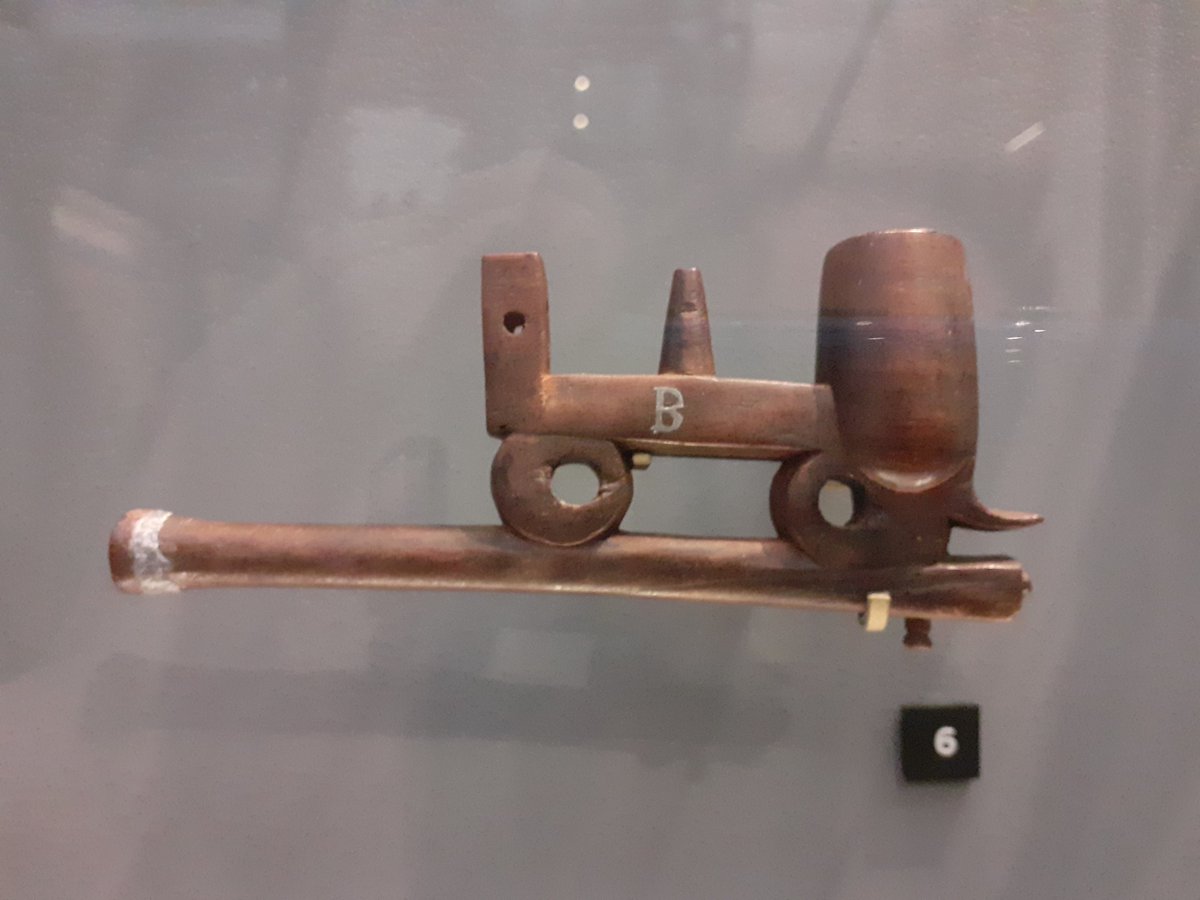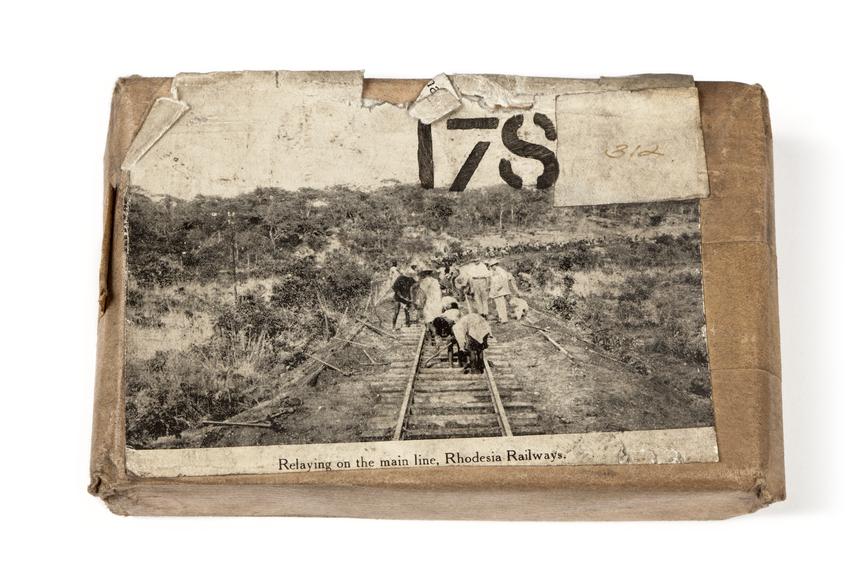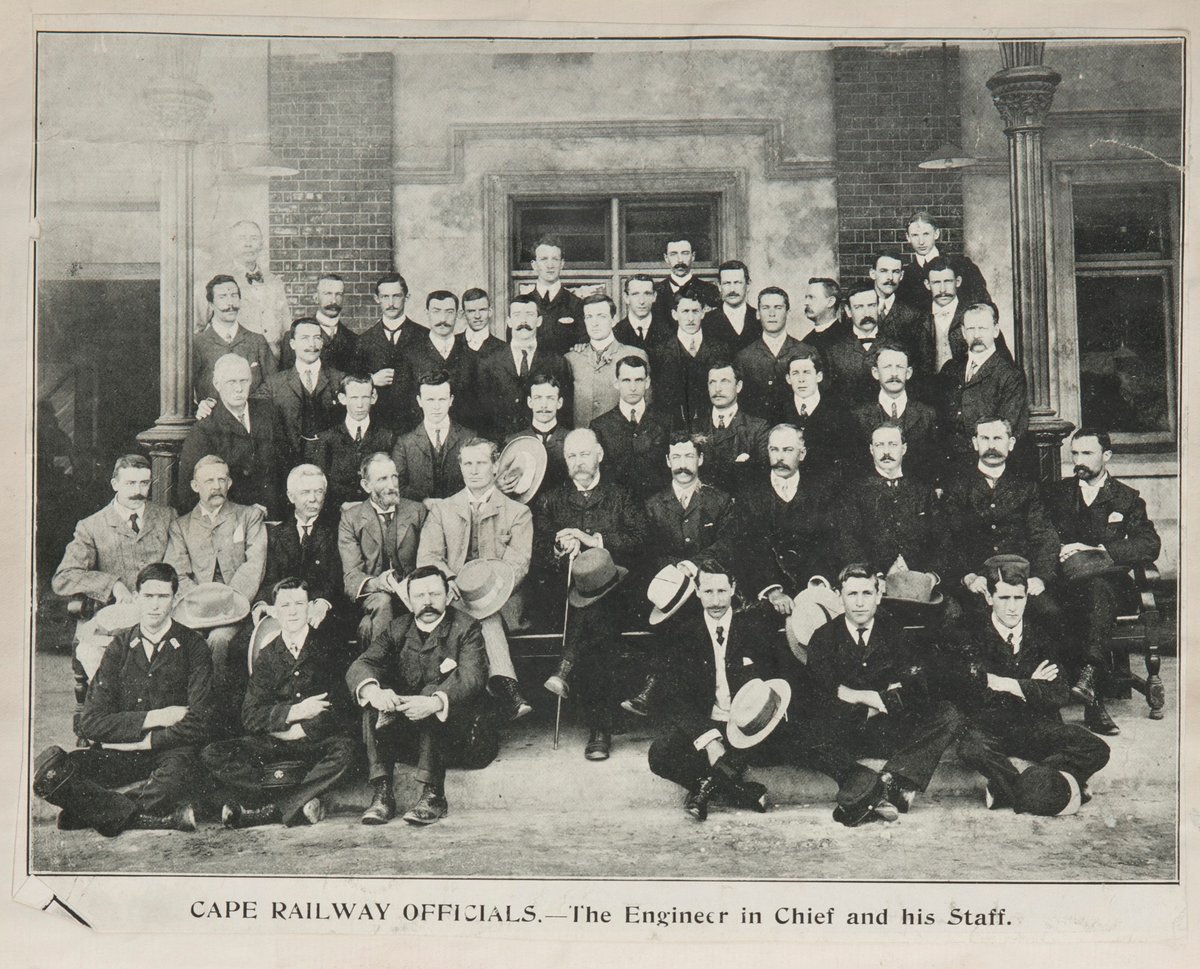
Hello - I'm the Research Lead @RailwayMuseum 👋
You may remember me from this soft viral hit on railways and empire recently 👇
I thought it might be nice, as the Culture Secretary meets with museums about the "right" way to tackle our imperial heritage to do a little thread:
You may remember me from this soft viral hit on railways and empire recently 👇
I thought it might be nice, as the Culture Secretary meets with museums about the "right" way to tackle our imperial heritage to do a little thread:
https://twitter.com/DrOliBetts/status/1334120141416755200
When my earlier tweet went viral, people asked a lot about how representative it was of imperial railways. 🔭
I'm always happy to share this absolute beauty of a map, which gives you the full extent of colonial railways in Southern Africa c1903
I'm always happy to share this absolute beauty of a map, which gives you the full extent of colonial railways in Southern Africa c1903

As you can see, that map is COMPLEX.
It makes thinking about how to display objects like this beauty - our Cape Government Railway 4-8-0 wood-burner currently @LocomotionSHD - really hard!
But we need to talk about it - not least because CGR 8E is a beauty who deserves love!
It makes thinking about how to display objects like this beauty - our Cape Government Railway 4-8-0 wood-burner currently @LocomotionSHD - really hard!
But we need to talk about it - not least because CGR 8E is a beauty who deserves love!

Empire's completely suffused into the story - the obvious question is WHY was this British loco in Southern Africa?
And that means talking about controversial figures like Cecil Rhodes, the avowed imperialist who cross-African railway was satirised here in Punch
And that means talking about controversial figures like Cecil Rhodes, the avowed imperialist who cross-African railway was satirised here in Punch

Railways were vital to how imperialists thought about Africa - about how to populate it, explore it, and control it.
Our Rhodesian Railways carriage took settlers from the ports of the Cape into the uplands that became Rhodesia (and later Zambia and Zimbabwe)
Our Rhodesian Railways carriage took settlers from the ports of the Cape into the uplands that became Rhodesia (and later Zambia and Zimbabwe)

The railways dramatically reshaped life for African people as they carved through tribal lands.
They funneled Bantu workers into the mines and cities, especially after the Cape Government introduced native taxation that required them to work in paying employment.
Many died.
They funneled Bantu workers into the mines and cities, especially after the Cape Government introduced native taxation that required them to work in paying employment.
Many died.
It was also a culture-shock.
A big cause of death was not outright colonial mistreatment but that many Africans were compelled into the highlands for railway construction where they lacked the warm clothes to stave off chills.
Bantu Pipe in shape of train from Horniman Museum.
A big cause of death was not outright colonial mistreatment but that many Africans were compelled into the highlands for railway construction where they lacked the warm clothes to stave off chills.
Bantu Pipe in shape of train from Horniman Museum.

But railways were also sites of African resistance, and reveal the complexity of Empire. Three Kings from what's now Botswana were so worried about Rhodes that they travelled to London to seek Government protection.
Check out the map - their names and only one limited railway!

Check out the map - their names and only one limited railway!


That sense of African resistance on the railways is suffused throughout culture today.
There's a great article here on railways and African music:
newframe.com/stimela-the-tr…
Have a listen to a bit of the late Zim Ngqawana's Migrant Workers jazz:
There's a great article here on railways and African music:
newframe.com/stimela-the-tr…
Have a listen to a bit of the late Zim Ngqawana's Migrant Workers jazz:
But why does this matter in a British museum?
Because all of this happened here too!
Beyer and Peacock in Manchester churned out rolling stock for Southern Africa (and lots of other places) for decades - and were rightly proud of their engineering prowess.
Images (c) SMG

Because all of this happened here too!
Beyer and Peacock in Manchester churned out rolling stock for Southern Africa (and lots of other places) for decades - and were rightly proud of their engineering prowess.
Images (c) SMG


*I am pausing this thread for home-schooling but will return later*
It also matters because of the WHO.
I've lost track, over 5-6 years at the museum, of the number of visitors enquiring about what it was like for their ancestors employed on colonial railways.
Image: Cape Government Railways Chief Engineer and Staff (c) SMG
I've lost track, over 5-6 years at the museum, of the number of visitors enquiring about what it was like for their ancestors employed on colonial railways.
Image: Cape Government Railways Chief Engineer and Staff (c) SMG

There was a revolving door of staff between Imperial and Home railways - South Africa's Cape Government Railway was known as a regular haunt of ex-Great Western Railwaymen.
Post cards from South African colleagues back to GWR offices in Paddington c1903. (c) SMG

Post cards from South African colleagues back to GWR offices in Paddington c1903. (c) SMG


And I guess this is my final point - why are we so ready to believe museum audiences cannot handle complex narratives?
Critics make it sound like telling Imperial history in museums is one long anti-British dirge. Hence the seeming need to "correct" the record.
Critics make it sound like telling Imperial history in museums is one long anti-British dirge. Hence the seeming need to "correct" the record.
But just looking at any family-history based TV show proves that people are capable of understanding nuance.
I've yet to meet a visitor with a family connection to imperial railways who just wants the sanitised version of their ancestor's experience.
I've yet to meet a visitor with a family connection to imperial railways who just wants the sanitised version of their ancestor's experience.
I've worked with museum visitors for six years; none come along to be unquestioningly spoon-fed an agenda.
And why should they? Modern visitors inhabit a world of choice.
Do we really think people with access to 70 freeview channels aren't able to pick and choose narratives?
And why should they? Modern visitors inhabit a world of choice.
Do we really think people with access to 70 freeview channels aren't able to pick and choose narratives?
All this "free-speech" agenda does is deny audiences access to stories. Deny them choice in the name of supposedly safe-guarding heritage.
If you believe the danger is museums offering a hard, definitive, last word on a subject you just don't know enough about museums.
If you believe the danger is museums offering a hard, definitive, last word on a subject you just don't know enough about museums.
Because, to get back to the start and how to display lovely CGR 8E, ultimately this story of Empire will be just one part of a whole. 

On the right of CGR 8E?
KF-7, the enormous Lancashire built engine that worked for 40 odd-years in China's tumultuous mid c20th.
Possibly one of our visitors most favourite objects.
KF-7, the enormous Lancashire built engine that worked for 40 odd-years in China's tumultuous mid c20th.
Possibly one of our visitors most favourite objects.

On the left in our planned layout?
Livingston Thompson, the little Double Fairlie engine whose twin boilers made it invaluable in tight, light, mountain railways.
A story about how a British invention spread around the globe, transforming regions like South America.
Livingston Thompson, the little Double Fairlie engine whose twin boilers made it invaluable in tight, light, mountain railways.
A story about how a British invention spread around the globe, transforming regions like South America.

My final point being - the colonial story of CGR 8E isn't replacing other "classic" museum stories.
The idea museums are behind some sort of heritage cancel-culture is just ill-informed.
This is just MORE history, weaving the colonial back into the narrative where it belongs.
The idea museums are behind some sort of heritage cancel-culture is just ill-informed.
This is just MORE history, weaving the colonial back into the narrative where it belongs.
Thank you for reading.
I'd just like to say this thread would exist without @kathleenlawther idea of making today a day of affirmative action around difficult histories.
But also wouldn't exist without the hugely talented researchers I work(ed) with at the museum and beyond ❤️
I'd just like to say this thread would exist without @kathleenlawther idea of making today a day of affirmative action around difficult histories.
But also wouldn't exist without the hugely talented researchers I work(ed) with at the museum and beyond ❤️
• • •
Missing some Tweet in this thread? You can try to
force a refresh


